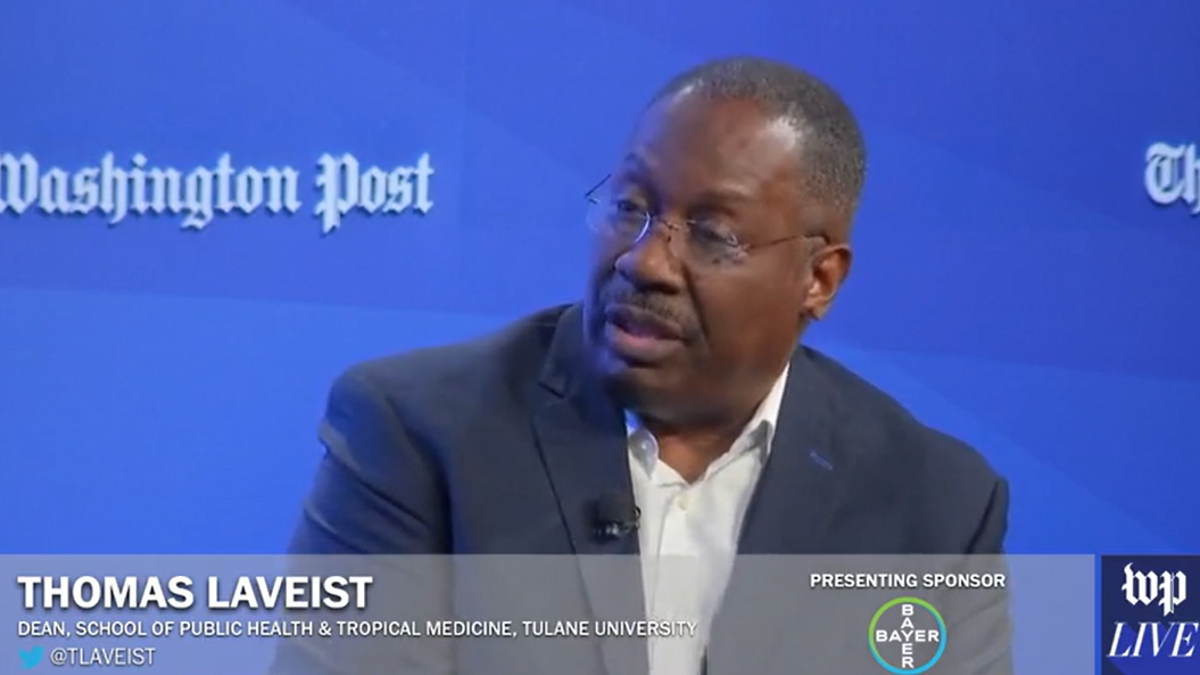College dean argues Social Security is textbook example of structural inequity against Black people
Thomas LaVeist, the dean of Tulane University’s School of Public Health and Tropical Medicine, spoke about Social Security policy in an interview on "Health Equity."
A prominent academic leader argued Thursday that White people’s life spans give them an unfair advantage in collecting Social Security.
Thomas LaVeist, the dean of Tulane University’s School of Public Health and Tropical Medicine, made the comments at Washington Post Live's "Health Equity" event. He was interviewed by Post reporter Akilah Johnson, whose beat is exploring "the effect of racism and social inequality on health."
LaVeist explained Social Security is the perfect example to demonstrate how structural inequity manifests in American society.
While he did not say that Social Security is racist in itself, the dean claimed it is impacted by "structural inequity."

Thomas LaVeist, the dean of Tulane University’s School of Public Health and Tropical Medicine. (The Washington Post)
"So we have a policy, we have Social Security program established in 1935," he said. "This program was established to help address poverty, that many people after retirement were not able to — to basically live."
LaVeist then suggested that if all other factors are hypothetically the same, White people in America will benefit more from Social Security because they tend to live longer than Black people.
"The program was developed, but if you look at the differences in life expectancy, if you say you have a Black worker, White worker, they begin working at the same day, at the same job, for the same company, they make the same salary, which might not always be the case, but in this example, they make the same salary. They paid the exact same amount of money into the Social Security system, and they both retire the same day," he said.

Equity, rather than equality has been a rising term in liberal politics in recent years, particularly when it comes to concepts such as DEI (Diversity, Equity, and Inclusion) and its related trainings. (Adobe Stock)
REPUBLICANS MOVE TO KILL TREASURY'S ‘GROTESQUE’ RACIAL EQUITY COMMITTEE
"Because the White person on average is going to live longer than the Black person, there’s going to be a difference in how much they’re going to get out of that system that they paid into," LaVeist continued.
He specified that he was not calling Social Security a racist program per se, but that it does not have equal outcomes in its current form.
"I’m not saying that Social Security is inherently racist, but I’m saying that it has an inequitable outcome because of these health inequities, and this is just a good way to demonstrate how that operates," he said.
CLICK HERE TO GET THE FOX NEWS APP
LaVeist went on to repeat his assertion that this is a great way to illustrate how "structural inequities" work, because "it doesn’t require any individual to have racist beliefs or attitudes or values, it just simply is the way the system operates. And if we don’t intervene, it’ll continue to function this way."










































